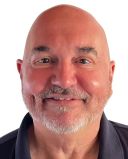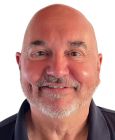Memory
Learning How to Honor a Departed Loved One’s Memory
I choose to live life in a way that would make my loved ones proud.
Posted April 22, 2021 Reviewed by Chloe Williams
Key points
- Honoring the memory of the noted HIV-AIDS and LGBTQ advocate William A. Bailey.
- We can choose to live our lives in a way that honors the memory of our departed loved ones.
How do you honor the memory of someone you love after they have died?
I’ve had plenty of opportunities to reflect on this subject because, I’m sorry to say, I have experienced an exceptionally large number of losses in my 62 years—including both my parents (Mom most recently, only a year and a half ago), grandparents, my best friend, and other close friends as well.
Just in the past year, I lost my 98-year-old college advisor, “Doc,” with whom I corresponded for more than 30 years; Dorothy, better known as “Duffy,” whose painting of an autumn scene I treasure; and my 96-year-old Great Aunt Peppy, my paternal grandfather’s youngest sister and the matriarch of my big Greek family.
Those losses aren’t counting the daily death toll in the COVID-19 pandemic, and the cloud of loss and grief it has stirred up across the world.
Every April 23 since 1994 has been a day to remember my one-time beau (and a remarkable HIV/AIDS advocate) Bill Bailey, who died on that date at 34 years old from an HIV-related brain lymphoma.
On the night we met in November 1985, Bill and I talked for hours about the HIV/AIDS epidemic. Bill at the time was a volunteer “buddy” for a man with AIDS, taking him grocery shopping or to a movie, being a friend during a very frightening time in the man’s life.
Bill was outspoken when it came to things he was passionate about. When he told me I must use my skills as a journalist to report on the HIV/AIDS pandemic and our LGBTQ community’s valiant efforts to respond to it, he wasn’t merely suggesting I consider it. He was simply saying this is how it had to be. I had certain skills that were useful for the task of bearing witness to our community’s suffering and heroism, and Bill saw it as simply my job to use those skills to make sure our suffering and heroism were documented and reported for history.
For his part, Bill’s own HIV diagnosis in the summer of 1986–at a time when there was no effective medical treatment, when a positive HIV test meant almost certain terrible illness and premature death—ignited a flame in him that would burn brightly until his untimely death eight years later.
Bill threw himself into LGBTQ equality and HIV/AIDS activism—the two being inseparable at the time. Not long after his diagnosis, Bill began working as a lobbyist for the American Psychological Association. He leveraged the contacts he made, and the opportunities the job offered, to advocate with Congress and the federal government’s public health agencies to involve American psychologists in developing HIV/AIDS prevention campaigns and mental health care.
Even as he lived with the medical impact of untreated HIV in his own body, Bill remained committed to making sure others would be spared a similar fate. After he died on April 23, 1994, Bill Bailey was remembered as the “father” of the HIV prevention lobby in Washington, DC. His death hit hard in the HIV advocacy community in Washington. His obituary reflects the tremendous impact Bill had within the limited time he was given. The American Psychological Association in his memory created the William A. Bailey Health and Behavior Congressional Fellowship program, annually sponsoring psychologists to spend time in the federal capital, immersing themselves in the interrelationship of behavioral health and federal policymaking.
It was one of the hardest experiences of my life—the hardest before I became my mom’s caregiver the last couple years of her life—but I visited Bill at George Washington University Hospital nearly every day of his final weeks. After work, I would walk from my office at 14th and K streets NW to the hospital, usually arriving around suppertime. It felt ironic to see the newly blooming daffodils dancing happily in the breeze even as I spent time with a young man slowly dying.
At some point, I began feeding Bill his food. Observing the stubble on his face, I knew Bill would want to be clean-shaven, so I brought in my electric razor and shaved his face. Often I simply sat in silence as Bill slept. I already knew from experience by then that merely being present is sometimes enough.
Bill and I were not boyfriends or partners at the time of his death. Our romantic relationship was far behind us, and he had been partners with another man, David, for the past five years. Like many gay men, I had become friends with my ex’s new partner and enjoyed spending time with them together. It was David who called to tell me when Bill died.
Witnessing Bill’s decline and death—and that of so many other gay men, including too many of my close circle of friends—I resolved something that shaped my life at least as much as Bill’s declaration that I must write about HIV/AIDS. I resolved that I would redeem the profound grief and sorrow I experienced by learning wisdom. I wanted my losses to be transformed into compassion and empathy for others’ suffering, and insight to help guide me and them to move forward with gratitude and serenity.
It has been a tough row to hoe sometimes, being the “strong” one for people I love when they are hurting. But my strength was forged in the fires of loss and sorrow. It is very strong and there is enough to share. That’s why I choose to honor Bill’s memory—and my Mom and Dad’s, and all my departed loved ones—by doing my best to live a life of compassion, kindness, and resilience. I know that’s exactly what they would want me to do.




